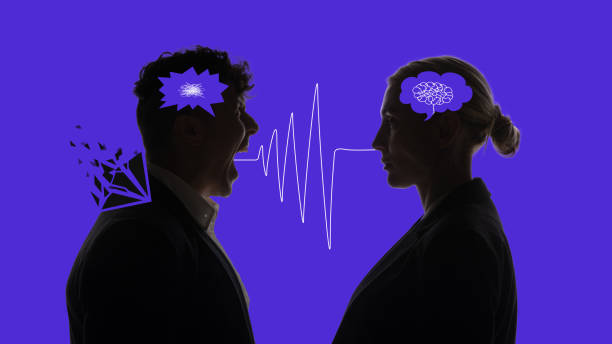We all love hearing kind words — whether it’s:
- “You handled that situation beautifully.”
- “Your energy feels rare — I appreciate talking to you.”
- “I like how you think — it makes me rethink things.”
But why do compliments feel so good?
More importantly — what happens in your brain when someone praises you?
In this guide, we’ll explore:
- The neuroscience behind verbal praise
- Why some compliments land better than others
- How to give meaningful flattery that builds trust
- Real-world examples from dating, leadership, and media
Let’s dive into Compliment Triggers — and how verbal praise isn’t just nice to hear…
It’s powerful enough to change how we feel about ourselves.
Why We Crave Compliments: A Brain-Based Need
From an evolutionary standpoint, humans are wired for social approval.
Praise isn’t just about ego — it’s about belonging , recognition , and even self-worth .
Psychological Insight: Dopamine and Social Reward
According to research published in Nature Neuroscience , receiving verbal praise activates the brain’s reward system — particularly the nucleus accumbens and prefrontal cortex .
This means:
A well-placed compliment can feel as good as a small win.
And the more specific and sincere the praise, the stronger the emotional response.
Because our brains don’t just respond to words — they respond to meaning.
5 Types of Compliment Triggers That Work Best
Not all compliments hit the same way.
Here’s what neuroscience says about the most effective types of verbal praise — and why they work.
1. Personalized Recognition
Generic praise (“You’re great!”) lands less strongly than personalized feedback.
Example:
“Nice job.”
“I really appreciated how you handled that — especially since it could’ve gone differently.”Why It Works: Our brains value individual attention — not blanket statements.
2. Unexpected Kindness
A compliment that comes out of nowhere hits harder — because it triggers surprise and novelty.
Example:
“You always look good.”
“I wasn’t going to say anything — but I caught myself smiling again thinking about our last conversation.”
Why It Works: Surprise activates the dopamine system , making praise feel fresh and exciting.
3. Humor-Wrapped Flattery
Compliments delivered with warmth and wit engage multiple brain regions — including those tied to humor processing and emotional bonding .
Example:
“You’re beautiful.”
“If charm were a currency, you’d be a billionaire by now.”
Why It Works: Laughter enhances memory — and makes praise feel less forced.
4. Vulnerable Admiration
When a compliment reveals something personal — it becomes emotionally resonant.
Example:
“You seem confident.”
“I admire how you carry yourself — it makes me want to show up more fully too.”
Why It Works: Vulnerability builds mirror neuron activity — creating emotional alignment.
5. Tone Over Text
The way something is said often matters more than the words themselves.
A warm tone, gentle inflection, or sincere pause can make a simple phrase feel profound.
Example:
“Good work.” (flat tone)
“Good work.” (with warmth and eye contact)
Why It Works: Vocal delivery impacts the insula and limbic system — areas responsible for emotional resonance and social connection .
What Happens in Your Brain When You Receive a Compliment
Understanding the neurological mechanics helps you see why praise affects us so deeply.
So when someone gives you a compliment that lands well — your brain doesn’t just hear it.
It feels it — and sometimes, even remembers it for years.
Real-Life Examples: Compliments That Left a Mark
Let’s look at real moments where praise changed someone’s mindset — or relationship dynamics.
The Message That Made Her Cry
He said:
“You have that kind of presence that makes me want to listen more than usual.”
She replied:
“That made me cry… thank you.”
Why It Worked: It acknowledged her inner world , not just her looks.
The Barista Who Said More Than She Knew
A regular customer told a barista:
“You have a voice that calms people down — I notice it every time.”
She laughed — then later shared:
“I’ve been struggling with anxiety… but that reminded me I bring calm too.”
Why It Worked: It validated her impact , not just her actions.
The Silent Match Who Broke the Ice With One Line
After weeks of ignoring messages, he finally sent a voice note:
“I was going to pretend I didn’t read your texts — but I couldn’t stop thinking about your bio.”
She responded instantly.
Why It Worked: He used vocal warmth , not just clever words.
How to Give Compliments That Make People Feel Seen
Want your words to land deeper? Use these strategies rooted in neurology and emotional intelligence .
1. Be Specific — Not General
Avoid vague lines like: “You’re amazing.”
“You’re beautiful.”
Instead: “You handled that meeting with such grace — I wanted to acknowledge it.”
“You have that rare kind of presence — makes me want to listen more than usual.”
Specificity creates meaningful mental markers — and long-term emotional impact.
2. Tie It to Identity, Not Just Appearance
People remember compliments that align with who they believe they are — or who they want to be.
Good vs. Bad Examples:
“You look cute today.”
“You have that rare kind of confidence — the kind that makes people want to talk to you.”
One fades fast — the other sticks.
3. Deliver It at the Right Time
Timing isn’t just everything — it’s emotionally strategic .
A compliment during a low point carries more weight than one during high confidence.
Example:
“You seemed unsure earlier — but I really appreciated your insight.”
This kind of praise acts like emotional support — and gets remembered.
4. Pair Words With Nonverbal Cues
Eye contact, tone, and body language enhance the power of praise.
Studies show that compliments delivered face-to-face or via voice carry more emotional resonance than written ones — because they include nonverbal signals .
Even over text, try adding warmth: “I hope this message doesn’t ruin my cool points — but I genuinely enjoyed our chat.”
5. Let Silence Speak Too
Sometimes, the best compliment is the one that lingers.
Try saying: “I’m going to stop before I say too much…”
“I wasn’t planning to flirt today — but clearly, I failed.”
Then let them sit with it.
Because silence after a compliment can create emotional space — and invite reflection.
Frequently Asked Questions (FAQ)
Q: Do compliments affect brain chemistry?
A: Yes — they activate the brain’s reward system , increasing dopamine and improving mood.
Q: Can compliments improve relationships?
A: Absolutely — especially when they’re specific, sincere, and well-timed.
Q: Are backhanded compliments harmful?
A: Often — they trigger the amygdala , causing confusion and mild stress instead of joy.
Q: Should I give compliments even if I’m shy?
A: Yes — especially if they focus on effort, character, or presence — not appearance.
Q: Do men and women process praise differently?
A: Slightly — due to socialization patterns — but both genders benefit from genuine recognition.
Final Thoughts
Verbal praise isn’t just a polite gesture — it’s a biological event .
Every compliment has the potential to shift someone’s mood, reinforce their self-worth, or even spark romantic interest.
Because the right words — spoken with care — can leave a lasting imprint.
So next time you want to say something meaningful… Don’t just speak.
Speak with intention.
Because in the world of compliments, tone and timing matter more than volume .
And sometimes, the most powerful thing you can say…
Is a sentence that makes them feel seen.





